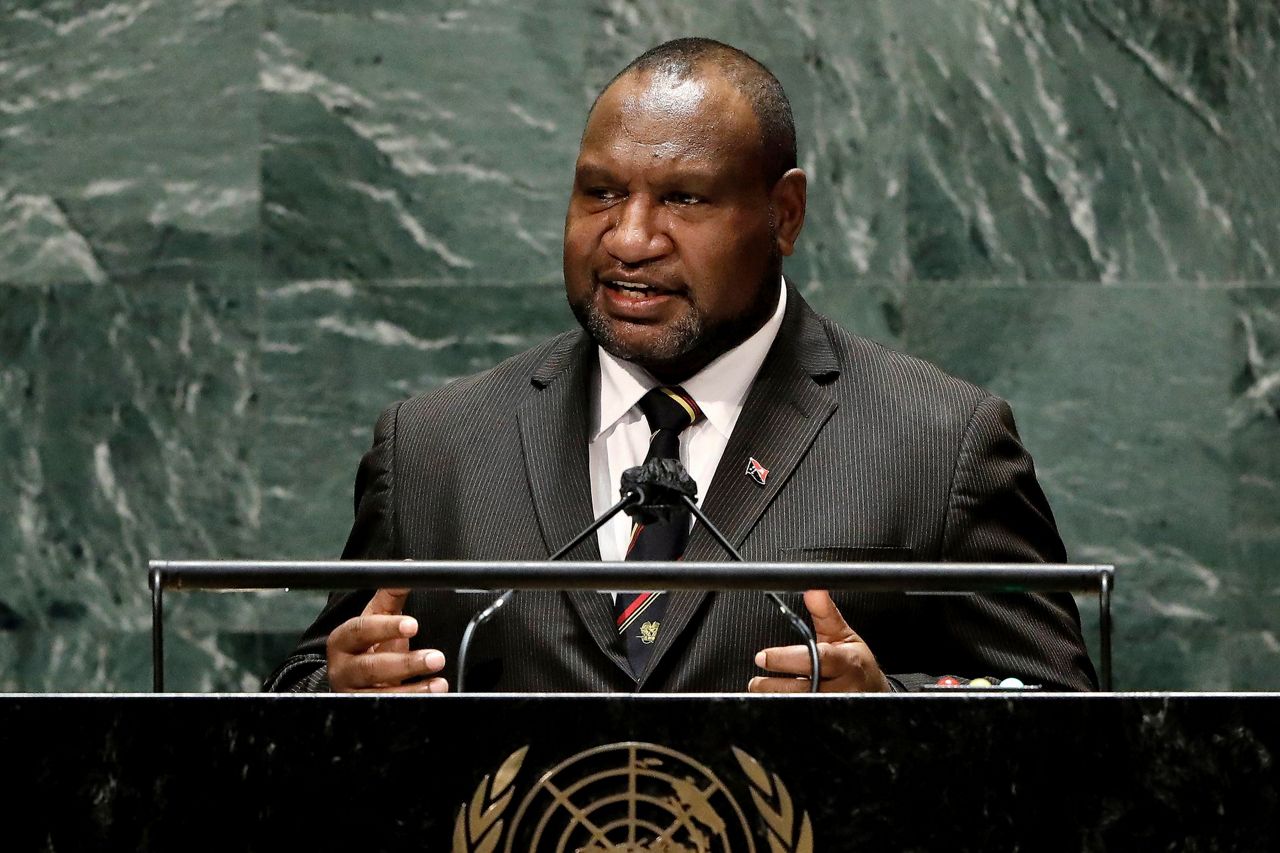CANBERRA, Australia (AP) — Papua New Guinea’s Parliament returned Prime Minister James Marape to power Tuesday following elections in the South Pacific Island nation.
He was nominated unopposed to lead the next coalition government at the first sitting of Parliament since the election.
Parliament resumed despite the election outcome being declared for only 104 of 118 seats by Tuesday. Counting continues in the remainder.
Marape’s Pangu Party holds 36 of those seats, 20 more than the next most successful party.
Marape said in a statement that he had a memorandum of understanding for a coalition of 17 parties. Around 50 contested the election.
He said his main aim would be to stabilize and grow the economy, put in place sustainable debt financing and roll out government programs for education, health, law and order.
“We will not be wasting time,” Marape said.
All 97 lawmakers who attended Parliament supported Marape’s nomination as prime minister.
Papua New Guinea has typically been governed by unstable, multiparty coalitions, but the country’s constitution won’t allow a no-confidence motion to bring down Marape for another 18 months.
Papua New Guinea is a diverse tribal society of 9 million people who are mostly subsistence farmers and speak more than 800 languages.
The leading contenders to head the new government had been Marape and his predecessor who resigned in 2019, Peter O’Neill.
O’Neill had attempted to delay the sitting of Parliament until vote counting was finished. But his application for a Supreme Court injunction failed.
Since independence from Australia in 1975, Papua New Guinea has held elections marred by violence, fraud and bribery. Police at the outset of voting on July 4 urged citizens not to sell their votes to any candidate and fights broke out over allegations of vote-fixing. Voting ended on July 22.
Marape apologized last month to thousands of people who were turned away from polling stations because of problems with electoral records.
Copyright 2022 The Associated Press. All rights reserved. This material may not be published, broadcast, rewritten or redistributed without permission.



